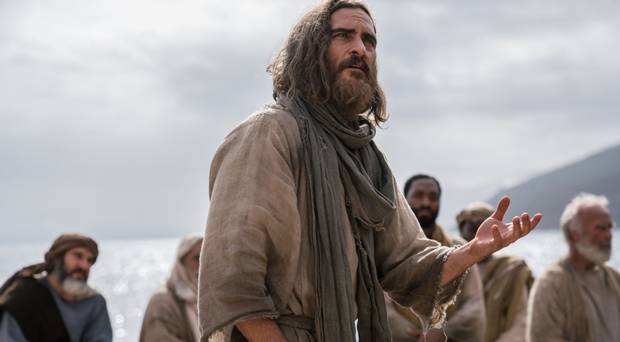On one hand we can rejoice that, as we prepare to remember the death and celebrate the resurrection of Jesus, the heart of the Bible’s story about the Lord will be onscreen. But, as is ever the case with God’s word on film, we need to be prepared for truth and fiction to collide.
At the outset, there are two main differences between the films: Mary Magdalene is a secular production while Paul, Apostle of Christ is not.
Should that matter? Not necessarily, but while Mary is directed by Garth Davis, who was behind the lens for Lion, the story takes the snippets about Mary that are known from the Bible and happily expands upon them.
It’s one thing for the character to be determined to tell her tale in order to share the bigger story of Jesus her saviour, but that isn’t all that’s happening here. The writers have created a character that is central to all that happens in Jesus’ ministry and, for the sake of the viewing audience, much more modern in outlook.
Mary is Jesus’ confidante and is given a role among the disciples that annoys Peter (Chiwetel Ejiofor) – as well it might, given that Mary seems to have his biblical leadership! She is also the one whose faith is strong and clear in the face of danger to Jesus in Jerusalem.
The film is beautifully shot and Rooney Mara is incredibly poised and authentic as Mary – and, praise God, Jesus’ story is told amid it all – but you could wish that there wasn’t quite so much invention happening.
Paul, Apostle of Christ is another matter. Produced by Affirm Films (Risen, The Star), the film is seeking to tell the story of Jesus through the story of Paul.
Luke the doctor (Jim Caviezel) is concerned to ensure that all God has done through Paul can be taken down for the encouragement of believers (in what, presumably, will become the book of Acts). He goes to where Paul is imprisoned in Rome so the apostle can relate his story.
Of course, there is fiction here, too. While it’s believed Luke was with Paul in Rome for up to two years, he also travelled with the apostle on some of his missionary journeys and was close to him for a long time before his imprisonment, so he would have known much of Paul’s Christian history and conversion already.
The film also seems to suggest that if Luke doesn’t get Paul’s story out to encourage believers, the persecuted church might lose hope. Why say that? As Paul himself reminds Luke, it’s Jesus who is the focus, not him. It’s Jesus’ story that is the story of the gospel, not Paul’s.
Paul also wrote to a number of people and churches while in prison – in places where, of course, the gospel was being preached – and we know God’s word doesn’t return to him empty.
So, yes, we could pick a few holes in these dramatic devices but the words of the Bible are often on the actors’ tongues, and the tagline on Paul, Apostle of Christ is where the heart of the film is: “Where sin abounds… grace abounds more”.
Thank the Lord that it does. And let us take our friends to see these films and share what the Word says so they can learn about this grace for themselves.
























